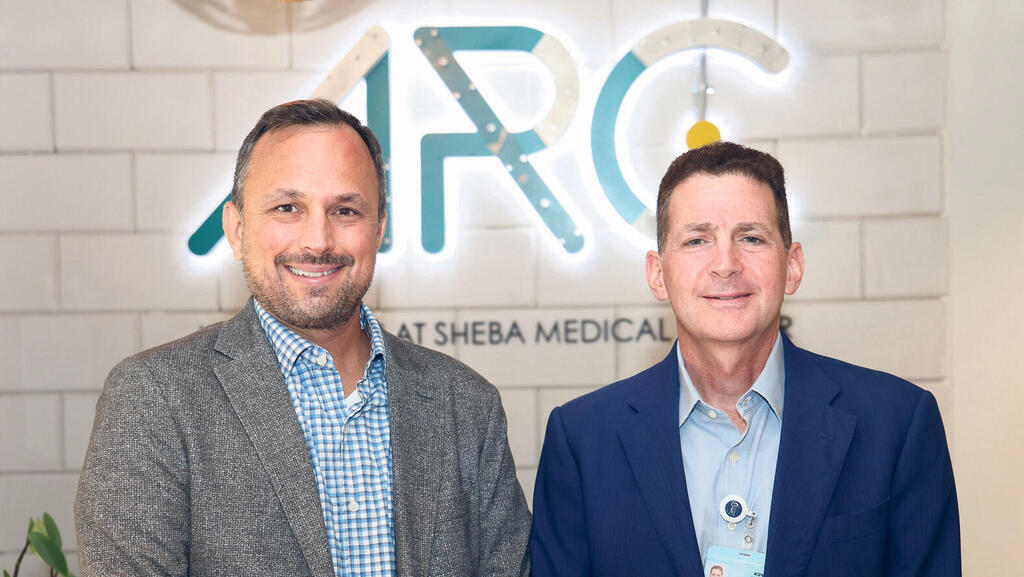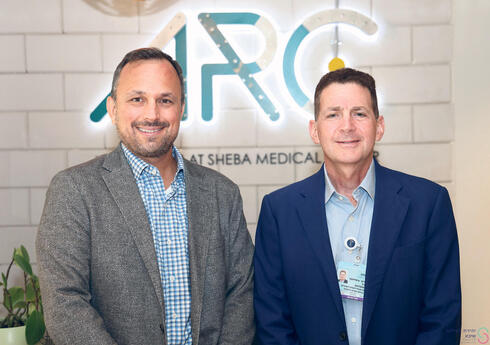
Sheba Medical Center joins General Catalyst's health innovation program
Sheba’s ARC Center for Digital Innovation will be only the third non-American hospital to join the program
One of the oldest and largest American VC funds General Catalyst is expanding its presence in Israel. Having previously invested in a number of companies such as Melio, Rapyd, Aidoc and Apiiro, the fund is adding Sheba Medical Center to its medical innovation program, “Health Assurance.” Sheba’s ARC Center for Digital Innovation will be only the third non-American hospital to join General Catalyst's program, following the admission of two hospitals from the UK and Canada.
General Catalyst started the Health Assurance program in 2019 with the goal to accelerate the integration of medical technologies in health systems. Currently, 18 hospitals are part of the program. While many international startups are developing promising medical technologies, few of them are actually integrated in the treatment of patients. This is due to the complexity of integrating new technology in hospitals, educating medical personnel about how to incorporate new technologies, concerns about lack of accuracy and also bureaucracy.
General Catalyst's program tries to address these issues by adapting the technologies to the healthcare system. The program is led by Daryl Tol, who previously managed a hospital in Florida, and a team with immense experience in the healthcare system. The program operates with a dedicated VC fund, which raised $700 million.
Related articles:
"We need people experienced in medicine who can make the necessary transformation in health systems around the world. The foundation has been studying this transformation for years, our managing partner has published several books on the subject discussing the changes that are needed. The foundation has since increased its focus on medicine. In 2019 there were 15 healthcare companies in our portfolio and today there are 140," Tol told Calcalist.
"The greater healthcare system sees startups in the field as a kind of virus because their DNA is completely different - they’re fast and sometimes sloppy. We try to work with entrepreneurs and create a bridge with the hospitals. We manage the differences between them so that they can work together. But our goal, unlike other funds, is bigger than just selling products to hospitals or clinics, but actually to make a digital transformation in the healthcare system. From now on, Sheba will also be involved in this work. We are very selective about hospitals joining the program.
“Israel is very compelling because there is an entrepreneurial atmosphere here. The Israeli market itself is too small and, as a result, startups need a connection to the American market. We worked on the agreement for half a year and we will see how we can create magic here both in terms of development and investment."
According to Tol, General Catalyst is not bothered by the political situation in Israel and its implications for the healthcare system or high-tech: "Look at politics in the U.S. Politics is always interesting and challenging, but in the end everyone has to take care of the healthcare system. We try to maintain political indifference."
At this stage the fund does not plan to open an office in Israel.
The ARC Innovation Center was established by the hospital's Director General Prof. Yitshak Kreiss and Chief Innovation Officer Prof. Eyal Zimlichman in 2019 to promote digital medical innovation at Sheba. The center allows entrepreneurs to test their products at the hospital, promotes strategic collaborations with hospitals abroad, and also operates an investment arm in collaboration with the Triventures fund. One of the great successes of the center is the unicorn Aidoc, which General Catalyst also invests in, and which developed an AI-based engine for X-rays and CT scans.
General Catalyst was established more than 20 years ago in Boston focusing on early-stage startups, but today it is more agnostic and has established special funds that invest in deeper and more complex technologies for long periods of time. Among the fund's best-known investments are Airbnb and fintech company Stripe. In the field of healthcare, their most well-known investment was telemedicine company Teladoc.
General Catalyst was one of the largest and most active investors in the U.S. in the first quarter of 2023. The fund took an approach that goes against the grain when it comes to investments in the healthcare sector which has cooled in recent years, especially before everyone began moving to invest in cyber and fintech. Israel saw a decrease in investment in the healthcare sector last year with only $2.8 billion raised - 13% less than in 2021. However, Israel is considered one of the prominent countries in the healthcare ecosystem with large funds such as Arkin Holdings and the aMoon Fund. Israel's MedTech sector makes up about a fifth of the entire high-tech industry in Israel, with 1,810 MedTech companies operating in 2022 and employing 63,000 people.
